Water & Drought
| Topics Agriculture California water history & politics Economics Environment Sacramento-San Joaquin Delta Water rights Water quality |
Resources Berkeley Water Center Regional Oral History Office |
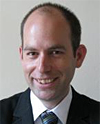 Maximilian Auffhammer
Maximilian Auffhammer
George Pardee Jr. Chair in Sustainable Development and associate professor of agricultural and resource economic
Phone: (510) 643-5472
Email: auffhammer@berkeley.edu
Media relations contact: Sarah Yang, (510) 643-7741, scyang@berkeley.edu
Expertise: Auffhammer can address the economic impact of the drought on California agriculture and agricultural labor. His research also includes the impacts of greenhouse gas emissions and air pollution on agriculture as well as the economic value of irrigation water.
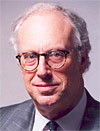 Michael Hanemann
Michael Hanemann
Professor of agricultural and resource economics and director of the California Climate Change Center at UC Berkeley
Phone: (510) 693-2627 (cell)
Email: hanemann@berkeley.edu
Media relations contact: Sarah Yang, (510) 643-7741, scyang@berkeley.edu
Expertise: Hanemann's research covers the economic value of water to urban and agricultural users in California, the role of pricing in water allocation, water marketing and the reform of water rights, the tradeoff between water diversions and environmental restoration in the Central Valley watershed, the impact of global warming on California water, and the need for a climate change adaptation policy in California.
 David Zilberman
David Zilberman
George W. and Elsie M. Robinson Chair in Food and Agricultural Resources Economics
Phone: (510) 642-6570 (office) or (510) 290-9515 (cell)
Email: zilber@are.berkeley.edu
Media Relations contact: Sarah Yang, (510) 643-7741, scyang@berkeley.edu
Expertise: Zilberman's research interests are agricultural policy, water quality and conservation, economics of technological change and natural resources, and micro-economic theory. He has studied the adoption of modern irrigation technologies in California, and the economics of water markets and water rights. A study he led on how California responded to the drought of 1987-1991 showed the importance of having reservoirs that allow for slowing the impact of drought. The study also demonstrated the capacity of California agriculture to adjust to shortages by increased reliance of groundwater and adoption of conservation tools.
CALIFORNIA WATER HISTORY & POLITICS
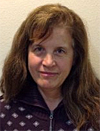 B. Lynn Ingram
B. Lynn Ingram
Professor of earth and planetary science and of geography
Phone: (510) 643-1474
Email: ingram@eps.berkeley.edu
Media relations contact: Robert Sanders, (510) 643-6998, rlsanders@berkeley.edu
Expertise: Ingram, co-author (with Frances Malamud-Roam) of "The West Without Water: What Past Floods, Droughts, and Other Climatic Clues Tell Us About Tomorrow" (UC Press, 2013), is a paleoclimatologist who studies rocks, sediments, shells, microfossils and trees for clues to changes in climate that occurred long before humans arrived in the Western Hemisphere.
Ingram says that California has had a thousand-year history of megadroughts and megafloods. Some, such as the flood of 1861-62 that left Sacramento and most of the Central Valley underwater, occurred within historical memory. "If you go back thousands of years, you see that droughts can go on for years if not decades, and there were some dry periods that lasted over a century," she said.
Head of the Laboratory for Environmental and Sedimentary Isotope Geochemistry (LESIG) at UC Berkeley, Ingram focuses on the chemistry of fossil shells taken from sediment beneath San Francisco Bay. Her study areas include marshlands around the Bay as well as sites in China, Australia and French Polynesia, encompassing terrestrial, coastal, estuarine and coral reef environments.
 Richard Walker
Richard Walker
Professor of geography and chair of the campus's California Studies Center
Phone: 510) 642-3901 (office), (510) 525-1969 (home office) or
Email: walker@berkeley.edu
Media relations contact: Robert Sanders, (510) 643-6998, rsanders@berkeley.edu
Expertise: Walker is an economic geographer who has written about California agribusiness as well as about the state's large urban areas. A leading figure in contemporary geography, Walker says that California has a lot of water, even in low rainfall years. "But it also has an enormous thirst, which is not easily quenched," he says. "The problem is rarely too little water alone, but who gets it and how we use it. Agribusiness dominates consumption, cities can pay the most, and the environment takes the hindmost. There's very little on the horizon in the way of leadership toward a more balanced demand for water."
Maximilian Auffhammer (see above)
Michael Hanemann (see above)
 David Sunding
David Sunding
Professor of agricultural and resource economics and co-director of the Berkeley Water Center
Phone: (510) 642-8229
Email: sunding@are.berkeley.edu
Media relations contact: Sarah Yang, (510) 643-7741, scyang@berkeley.edu
Expertise: Sunding is an authority on water supply, pricing and efficiency, and can speak about the relationship of endangered species protection and climate change to water policy. He served as a senior economist with President Clinton's Council of Economic Advisers, advising on natural resource, agricultural and environmental policy. He currently sits on the advisory board of the national Water Policy Institute.
Richard Walker (see above)
David Zilberman (see above)
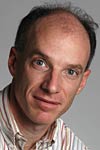 David Sedlak
David Sedlak
Professor of civil and environmental engineering and co-director of the Berkeley Water Center
Phone: (510) 643-0256
Email: sedlak@ce.berkeley.edu
Media relations contact: Sarah Yang, (510) 643-7741, scyang@berkeley.edu
Expertise: Sedlak is author of "Water 4.0: The Past, Present and Future of the World's Most Vital Resource" (Yale Press, 2014), and the deputy director of Re-inventing the Nation's Urban Water Infrastructure (ReNUWIt), a research center funded by the National Science Foundation and led in partnership with Stanford University.
Sedlak's research area focuses on environmental chemistry, water quality engineering and ecological engineering. He can discuss the options of water reuse, or augmenting water supplies with municipal wastewater effluent.
He notes that cities that rely upon groundwater supplies of water are in a much better position to weather the drought than those that rely upon surface water supplies, such as reservoirs and aqueducts. But he adds that all cities should diversity their sources of water to manage the risks of drought.
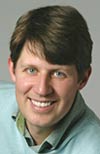 Mark Stacey
Mark Stacey
Associate professor of civil and environmental engineering
Phone: (510) 642-6776
Email: mstacey@berkeley.edu
Media relations contact: Sarah Yang, (510) 643-7741, scyang@berkeley.edu
Expertise: Stacey's research focuses on estuary and coastal fluid mechanics, including application to salt and sediment transport, marsh restoration and biological productivity. He can discuss how the hydrodynamics of the Sacramento-San Joaquin Delta relate to river flows and exports of water from the Delta.
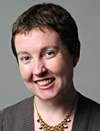 Sally Thompson
Sally Thompson
Assistant professor of civil and environmental engineering
Phone: (510) 642-1980
Email: thompson@ce.berkeley.edu
Media Relations contact: Sarah Yang, (510) 643-7741, scyang@berkeley.edu
Expertise: Thompson is an eco-hydrologist whose research focuses on the relationship between vegetation and water cycling, primarily in water limited systems. Current projects include the role of fire in modifying water resources in the Sierra Nevada, the implications of climate change on vegetation distribution and hydrological dynamics in Mediterranean Oak Woodlands, the importance of fog for ecosystem function in the Bay Area, and the effects of land use and agricultural change on hydrology and climate at sites in Brazil and India.
Michael Hanemann (see above)
David Sedlak (see above)
Mark Stacey (see above)
David Sunding (see above)
Sally Thompson (see above)
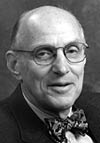 Joseph L. Sax
Joseph L. Sax
James H. House and Hiram H. Hurd Professor of Environmental Regulation, emeritus
Phone: (510) 642-1831
Email: jsax@law.berkeley.edu
Berkeley Law media relations contact: Susan Gluss, (510) 642-6936, sgluss@law.berkeley.edu
Expertise: Sax has written extensively about issues of environmental law, including water law, conservation and public land use. He is the author of five books on environmental law issues, including "Mountains Without Handrails"and "Defending the Environment." From 1994 to 1996, he served in President Clinton's administration as the counselor to the Department of the Interior secretary and deputy assistant secretary for policy at the U.S. Department of the Interior. In 2007, Sax was a co-recipient of the Blue Planet Prize, an international environmental award.
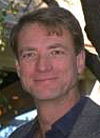 Matt Kondolf
Matt Kondolf
Professor of environmental planning and geography, and landscape architecture and environmental planning
Email: kondolf@berkeley.edu
Media Relations contact: Kathleen Maclay, (510) 643-5651, kmaclay@berkeley.edu
Expertise: Kondolf is an authority on California's Delta region and on river restoration, which in the United States has accounted for more than 40,000 projects and expenditures of more than $17 billion since 1990. He is an author of a 2007 report, "Re-envisioning the Delta," which assessed the threats of uncontrolled urbanization on the Delta, and proposed alternatives for long-term Delta security.
Mark Stacey (see above)
David Sunding (see above)
Michael Hanemann (see above)
Joseph L. Sax (see above)
David Zilberman (see above)
David Sedlak (see above)
Sally Thompson (see above)
David Zilberman (see above)
CAMPUS RESOURCES
Berkeley Water Center
The Berkeley Water Center brings together more than 70 researchers with water-related expertise from numerous UC Berkeley colleges and departments. The center takes a comprehensive approach to water resources research and management that reflects variable and uncertain supply, increasing demand and inadequate structural and institutional infrastructure. Its goal is to develop and demonstrate the application of new concepts, information and engineering technology and computational tools that serve diverse water interests.
Regional Oral History Office
Several interviews with major players in California's water history have been conducted and recorded by the Bancroft Library's Regional Oral History Office.

